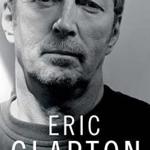Mark Kriegel’s Pistol came out in 2007 and tells the fascinating and tragic story of the basketball player known as “Pistol” Pete Maravich (1947-1988). I highly recommend it to most anyone who likes reading, and to those who like biographies, and to those who like sports, and to those who like good writing. This is a sizeable group of would-be readers, I know, but it’s justifiably sizeable. Kriegel is a solid historian, a talented storyteller, and has good insight into the human condition. His worldview and mine differ, and his characterizations of people lean far too heavily on psychology for my taste, but though I possess a fundamentally different understanding of the causes and the solution of Maravich’s sad life, I commend him for what is an excellent, if heartbreaking, biography.
This is not a conventional review but a reflection on the book. In general, the story of the Pistol is one of excess and, resultingly, sadness and pain. In short, Pete and his father were obsessed with basketball. This obsession created a person of extremes: the Pistol’s obsession with the game made him perhaps the most talented basketball player ever, and yet his obsession destroyed him, emptied him, left him without any greater meaning or purpose in his life. To read his story is to see a real-life Faustus in action. He makes his bargain with the basketball gods, and they make him wildly talented, and yet they demand his soul in exchange, leaving him a shell of a person. It is hard, bitterly hard, to watch this unfold, particularly as a Christian. One aches for Pete, yearns for his domineering, driven father, Press Maravich, to bring balance into Pete’s life, but this never happens. Press raised Pete to be the first million dollar basketball player and, incredibly, he was. He drilled him and trained him and immersed him in basketball until the boy could not miss–and could not be happy.
Pistol is thus not simply the biography of Pete, it is the story of Press, a man driven by a challenging background to succeed at any cost. He did succeed–his son clearly thrilled him, and many others–but the spectacular height of the success was matched squarely by his failure as a father to train his son in what truly matters. The father laid his Isaac on the altar, but there was none there to stay his hand, none to catch him from driving his son into depression, drugs, drinking, decadence, and an early death. This is a story of fathers and sons that has been told many times in human history, and will be told many times more to come.
Pete’s life ends on a happy note. He becomes a Christian and, in turn, something of an evangelist. His transformation was genuine, and he became an adoring father, a good husband, a dutiful son, a passionate witness for Christ. This period of light in Pete’s life is brief, sadly, because only a few years after God saves Pete, he dies in 1988. Playing basketball with, of all people, Dr. James Dobson, Pete collapses and dies on the spot. He left behind two young sons who worshipped the ground he walked on and who have never really found their way. Kriegel tells their story as well, and it is clear that the loss of their loving father left the boys as lost as Pete himself once was. Pete’s life, then, truly is a mix of pain and beauty, though both are magnified in an unusual way. The beauty he created–even if you don’t like basketball, watch this video, and hold onto your jaw–was breathtaking, and the wake of pain he experienced and created was similarly significant. Pistol Pete was a mystery, a paradox, and he will remain enigmatic, a comet who flashed brightly and landed hard.
If you’re a man who likes sports, or a dad (or mom) who has children who love sports, read this book. It has lessons that you will quickly pick up, though of course Kriegel does not write in a moralistic way. Or, if you’re a Christian who struggles to restrain your passions for earthly things, whatever they may be, read this book. You will profit from seeing the logical outcome of pursuing earthly things too hard. I did. As a boy, I was influenced by the Pistol, and came to love basketball too much. I still struggle to keep my passion for the game in check, though I have all the right answers in my mind–don’t obsess over earthly things, it’s just a game, play for joy and fun and, when possible, evangelism–but I don’t always put those answers into play. I am a man, and I have clay feet, and though I am redeemed by the grace of God, I still struggle to keep my passions in perspective.
I suppose that many of us are like this, in one way or another, and that we struggle to keep certain impulses and interests in balance. Though we do struggle, we must not misread the presence of struggle as a justification for defeat. We’ve got to struggle on, to keep fighting, to pray hard, stay accountable, and seek holiness. Most of all, we’ve got to focus on Christ, the One who was, like the Pistol, a man of great paradox. This man, though, did not wrestle with sin. He had none. No, He was paradoxical because, though He was omnipotent, He became a man. Though He was a lion, He became a lamb. Though He deserved no death, He died, in order that you, and me, and Pete, and millions upon millions of other people could escape the sins that would drive us far from God’s hand into a place of uncountable sorrow. This is a paradox that, unlike the Pistol, does not leave us with sadness. It leaves us with joy–and it promises to transform us, and make us triumphant, even as Pete now has won the victory, and lost his earthly chains.















